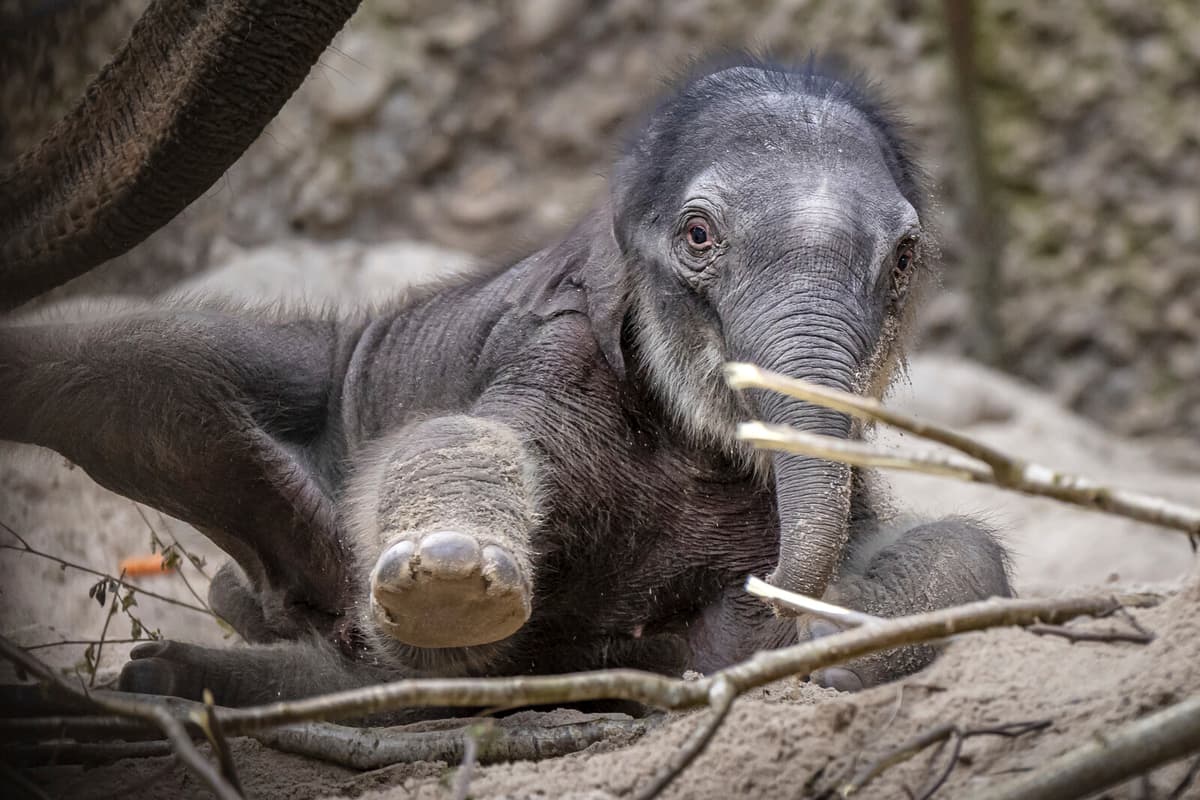The clock struck 2:22 on Saturday morning when monitors filmed the birth and the calf's first stumbling steps, writes the zoo in a press release.
The staff are delighted about the birth and that the calf is both standing and drinking water on its own, says zoo manager Severin Dressen, while urging caution.
"The first weeks of a calf's life are always the most sensitive, even if the calf appears to be healthy and strong", he writes.
Thus, the elephant park now has six elephants of the endangered species Asian elephant: four females, one male, and the newly born calf, which has not yet been named.
Even before the birth, the zoo announced that the name would start with a Z, and the name will be revealed this week.
The Asian elephant (Elephas maximus) is slightly smaller than the African elephant and lives exclusively in the forest.
There are estimated to be between 26,000 and 33,000 wild-living Asian elephants.
The major problem for Asian elephants is that their living space is rapidly decreasing, creating conflicts with local populations. Asian elephants are not infrequently killed because small-scale farmers want to protect their crops.
Source: WWF






